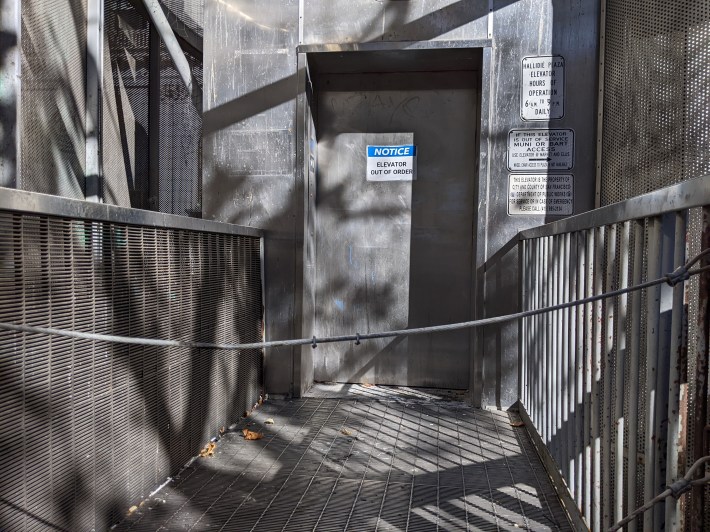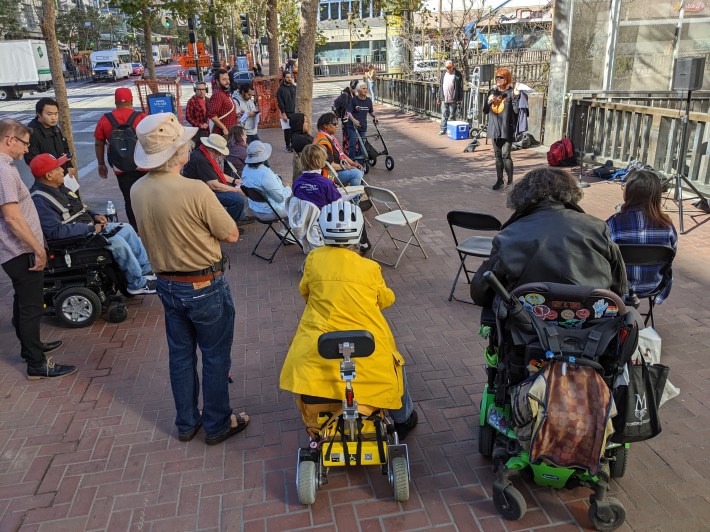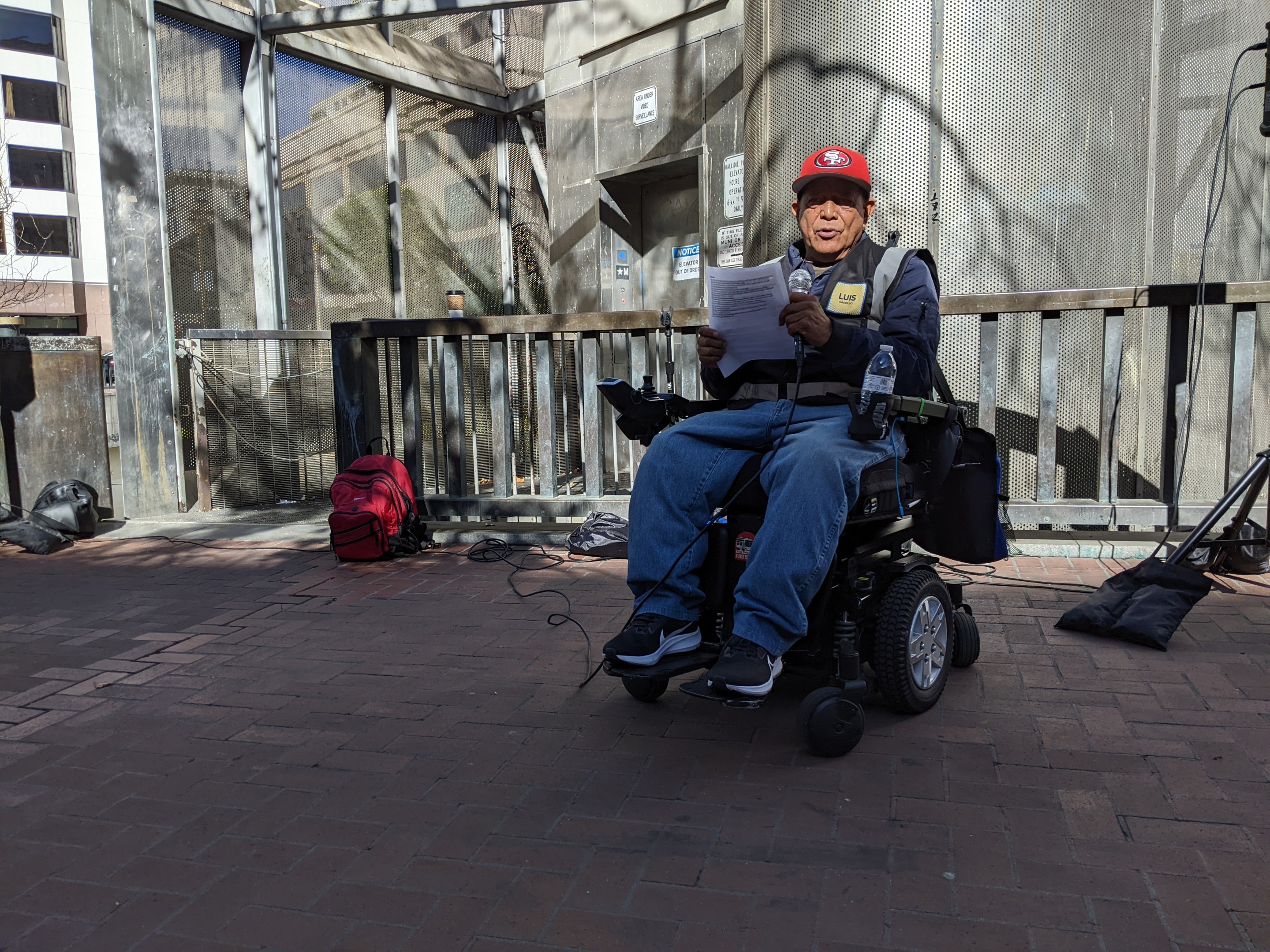Note: GJEL Accident Attorneys regularly sponsors coverage on Streetsblog San Francisco and Streetsblog California. Unless noted in the story, GJEL Accident Attorneys is not consulted for the content or editorial direction of the sponsored content.
Tenderloin advocate Luis Castillo has worked for more than twenty years trying to get the elevator fixed at Hallidie Plaza above the Powell Street BART and Muni Station. "It broke in 2001," he told a crowd of some twenty disability rights advocates who gathered on the sidewalk to demand more state and federal funding for better elevators and other measures to support the Bay Area's transit system. "It's made of perforated metal and people urinated on it, which ruined the elevator."
Now it's going to take about $2 million to replace it.

As the advocates at the event pointed out, for someone in a wheelchair, a BART station without a working elevator may as well not exist. "Too often seniors and people with disabilities are just left out," said Shaya French with Seniors and Disability Action. She explained that when an elevator is out or a bus driver doesn't announce stops, it can mean a missed doctor's appointment for a person in a wheelchair or someone who can't see. "We can't be second-class citizens."
By the numbers, BART and Muni seem to have a good record of maintaining wheelchair access to their stations. BART has 138 elevators and Muni has twelve. On average, only two elevators are out at any given time. But the numbers belie serious accessibility issues. For one, most BART and Muni stations have no elevator redundancy--if one elevator is out, then the station is simply unusable for many people. Moreover, the elevators don't go directly to the platforms and are often in distant locations from each other, which means even when the elevators at a given station are working, a disabled person can find themselves having to walk or roll a third of a mile, taking one elevator to the mezzanine level and then having to cross the station to a different elevator at the opposite end to get down to the platforms, explained French.

Carter Lavin, the Transbay Coalition advocate who helped organize the event, said the state and feds have to do better--they have to build more elevators and make sure all stations are accessible all the time. "Accessibility shouldn't just be a box to check. The funding scarcity is artificial. And a broken elevator is a choice."
He stressed that while it's a moral thing to provide disability access, it's also just practical for everyone. "This is also for anyone who's twisted an ankle, pushed a stroller, or even a bicycle, or is just exhausted at the end of the day," he said, reminding the crowd that everyone is only temporarily able-bodied; at some point, everyone gets injured, suffers from a disease, or just gets old, rendering a flight of stairs a serious or even insurmountable barrier. "We have a new subway, a new busway, but what good is a train or bus if you can't get on it?" he asked.
***
Wednesday's event at Powell BART was just one of many this month focusing on all things transit as part of Transit Month. Be sure to check out one of the remaining events and socials.






